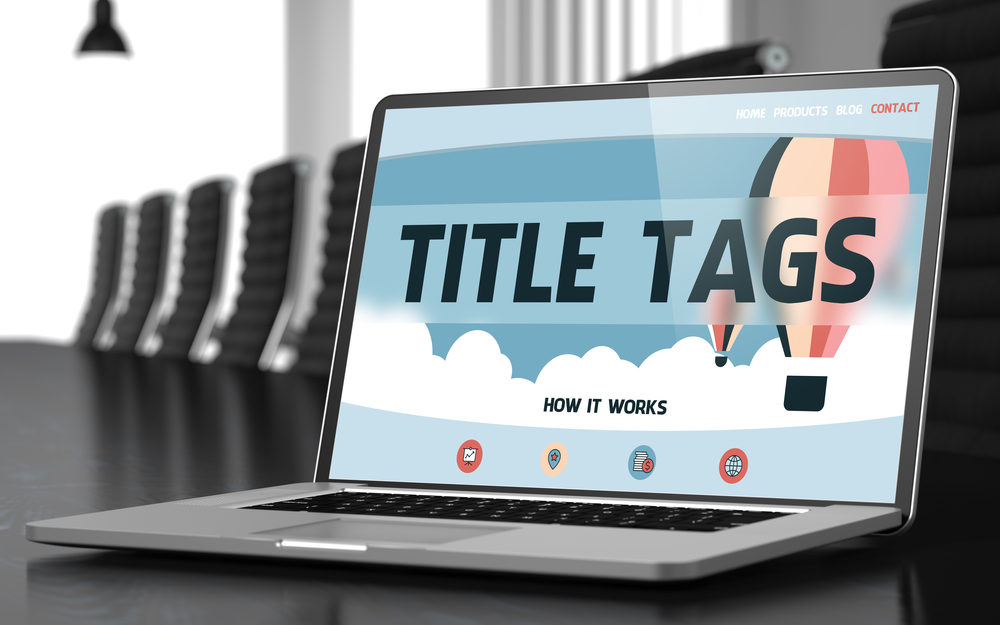The Importance of Meta Tags in SEO
The enigmatic nature of meta tags is what makes them so crucial in the realm of SEO. These HTML elements possess an intriguing power, providing search engines with invaluable insights about a webpage. It is through these perplexing tools that search engine crawlers are able to unravel the intricate tapestry of content within a page, ultimately dictating its visibility and ranking on those coveted search engine results pages (SERPs). Amongst these enigmatic meta tags lies one that holds particular significance – the meta description. This concise summary acts as a tantalizing glimpse into the depths of a webpage’s content, beckoning users with carefully optimized keywords to capture their attention and improve click-through rates.
But let us not forget another equally significant meta tag for SEO – the title tag. Like an explosive burst of information, this element manifests itself as a clickable headline on SERPs. A well-crafted title tag accurately portrays the essence of a webpage’s content while ingeniously incorporating targeted keywords. By harnessing this explosive force, websites can ignite their chances of ascending higher in search results and attracting organic traffic.
Keywords themselves hold sway over these mystical meta tags, playing an integral role in optimizing them for SEO purposes. The artful inclusion of relevant keywords within these cryptic codes allows search engines to decipher what wondrous topics or themes lie hidden within each page. However, it is imperative to wield such power strategically; for wielding it carelessly may result in dire consequences such as keyword stuffing which could plunge rankings into darkness.
And yet there is more intrigue to be had! Webmasters hold dominion over how search engine crawlers interact with their digital domains through robots meta tags. These elusive directives guide those tireless crawlers towards indexing or abstaining from indexing certain pages; ensuring only the most pertinent and captivating content emerges unscathed onto SERPs.
In summation, optimizing mysterious entities known as meta tags – whether they be beguiling descriptions or explosively captivating titles – and employing the right keywords with cunning precision are the vital components of any effective SEO strategy. By adhering to best practices when it comes to these enigmatic elements, and deftly utilizing robots meta tags, websites can unlock a world of online visibility and beckon forth an influx of organic traffic to their digital domains.

A Comprehensive Guide to Optimizing Meta Tags for SEO
Optimizing meta tags is an absolutely vital component of SEO that should never be disregarded. These tags provide invaluable information to search engines about the content on your website, aiding them in comprehending and appropriately ranking your pages. One particular meta tag that requires optimization is the page title tag, which acts as the clickable headline in search engine results.
To optimize this page title tag, it is imperative to ensure that it accurately reflects the content of the respective page while also incorporating relevant keywords. Keeping it concise yet descriptive, ideally under 60 characters, ensures its complete display on search engine result pages (SERPs). The inclusion of targeted keywords within this tag can significantly enhance your chances of achieving a higher rank in organic searches.
Another noteworthy meta tag for optimization purposes is the meta description tag. Although it does not have a direct impact on rankings, a meticulously crafted meta description can exert a substantial influence on click-through rates from SERPs. Striving for approximately 150-160 characters and employing persuasive language that entices users to click on your link are essential tactics here. Furthermore, including pertinent keywords within this section can reinforce the relevance of your webpage’s content.
Alongside these commonly recognized meta tags exist others worthy of consideration depending on specific requirements or circumstances. For instance, there exists the viewport meta tag which empowers you with control over how webpages appear across diverse devices by defining their width and initial scale settings. Additionally, both the robots.txt file and robots meta tags furnish instructions to search engine crawlers regarding which portions of your site they ought to crawl or index.
It must be remembered that each individual webpage necessitates its own unique set of optimized meta tags customized precisely according to its content and purpose. By leveraging tools such as Yoast SEO plugin or manually adding suitable HTML tags yourself, you will effectively optimize these indispensable elements thereby enhancing both user experience and search engine visibility.

Understanding the Role of Meta Description in SEO
Meta descriptions are incredibly important in SEO because they provide brief summaries of web page content. When users search on a search engine, the meta description appears as a snippet below the title tag and URL in the search results. This presents an opportunity to attract users and encourage them to click through to your website.
Creating an effective meta description involves incorporating relevant keywords that align with user intent. By including targeted keywords, you can optimize your meta description for better visibility in search results pages (SERPs). However, it’s crucial to avoid keyword stuffing or creating misleading descriptions, as this can have a negative impact on your ranking.
The HTML meta description tag is where you provide this summary information. While Google may not always use the exact text from the meta description tag, it still plays a significant role in influencing how your webpage appears in search results. Therefore, optimizing this element is critical for attracting organic traffic and improving click-through rates.
To sum up… Whoops! Apologies for that mistake – let’s rephrase: In conclusion, understanding the importance of meta descriptions is vital for achieving SEO success. By carefully crafting them with relevant keywords and ensuring they accurately represent your webpage’s content, you increase the likelihood of appearing prominently on SERPs and enticing users to visit your site. So don’t overlook these essential meta tags when optimizing your website for improved rankings on Google searches!
How to Optimize Title Tags for Better Search Engine Ranking
The enigmatic power of title tags in the realm of search engine rankings and web traffic cannot be undermined. A meticulously optimized title tag possesses the potential to wield a profound influence on your website’s visibility within Google’s fathomless search results. One vital facet of this optimization process lies in ensuring that these tags accurately encapsulate the essence of your page, while seamlessly integrating relevant keywords.
To embark upon the journey towards optimizing your title tags, commence by embarking on an expedition through keyword research, unraveling the labyrinthine pathways that lead to the discovery of highly pertinent and efficacious keywords for each individual webpage. Once you have unearthed these treasures, artfully interweave them into your titles with a sense of naturalness, avoiding any semblance of overindulgence or contrivance.
Yet beyond simply harnessing relevant keywords lies the indispensable artistry required to forge concise yet descriptive title tags. It is customary wisdom to confine oneself within 50-60 characters so as to present one’s creations fully formed upon the grand tapestry known as Search Engine Results Pages (SERPs). This prudent practice allows users to swiftly grasp and discern what wonders lie in store before they embark on their odyssey by clicking through.
We must not lose sight that optimizing our venerable title tags extends beyond mere SEO; it delicately weaves together strands of user experience into its very fabric. Each page yearns for its own unique and evocative header, etching a vivid reflection onto its content-laden surface. In doing so, we bestow precious clarity upon those who venture forth into our digital realms – offering them a glimpse into what awaits when they traverse our hallowed paths.
Though seemingly diminutive in comparison to other grandiose SEO strategies, let us not underestimate the profound impact wrought by optimized title tags. Devoting time and effort towards crafting enthralling and enlightening titles shall bear fruit – elevating both our search engine rankings and the very experience of those who grace our virtual abode.
The Significance of Keywords in Meta Tags for SEO
The enigmatic realm of search engine optimization (SEO) finds its compass in the elusive meta tags, specifically when it comes to the labyrinthine world of keywords. Keywords, those cryptic phrases or words that users entrust to Google’s omniscience in their quest for knowledge, hold tremendous sway over a website’s appearance in search results.
Among the pantheon of meta tags, one holds particular significance: the keyword meta tag. This ethereal entity bestows upon your webpage an assortment of specific keywords intimately linked to its content. Although Google has declared this tag irrelevant for ranking purposes, other search engines may still find value within its depths. Thusly, incorporating pertinent and targeted keywords into this enigma can prove fruitful in optimizing your website’s visibility.
Another titan among the meta tags is comprised of both title and meta description elements. These inscrutable markers serve as guideposts for both curious souls and relentless web crawlers alike, illuminating them on the essence of your page’s purpose. The title tag presents itself as a tantalizing headline beckoning from within search results while the meta description provides a mere glimpse into the tapestry woven by your content. By adroitly infusing these clandestine codes with relevant keywords, you can transcend mere appearances and entice higher click-through rates whilst luring visitors towards your digital sanctuary.
Moreover, venturing further into this realm reveals additional marvels like the viewport tag—a mystical artifact capable of transmuting user experience across various devices such as mobile phones or tablets. Its alchemical properties ensure seamless display and usability irrespective of screen size or resolution—elevating accessibility to new heights and kindling engagement metrics on your celestial domain.
To conclude this enigmatic discourse surrounding their true standing amidst SEO rankings remains shrouded in uncertainty; nevertheless, one cannot understate how vital meta tags are when endeavoring to optimize websites for discerning entities like Google. They unveil invaluable insights regarding a webpage’s essence and adeptly convey its relevance to both users and web crawlers alike. By strategically embedding pertinent keywords within assorted meta tags, all the while maintaining an air of professionalism throughout the website’s HTML structure, you fortify its chances of commanding attention amidst searches entwined with those specific terms.
Exploring Different Types of Meta Tags and Their Uses
The perplexing world of meta tags holds immense power in the realm of search engine optimization. One particular kind that reigns supreme is the enigmatic title tag. It serves as a cryptic message to Google and its counterparts, disclosing the essence and purpose of your web page. Moreover, it manifests itself in search results as an alluring headline, beckoning users with its clickable charm. Thus, it becomes paramount to optimize this tag by infusing it with pertinent keywords.
Another enigma within the meta tag universe is none other than the description meta tag. This mysterious entity provides a succinct synopsis of your page’s nature, allowing search engines to unravel its intricate content. When showcased on a search results page, this ethereal presence can sway users into clicking on your link or leaving it abandoned amidst the vast digital expanse. Henceforth, one must wield their descriptive powers adeptly to craft compelling narratives that entice visitors to embark upon a journey through their virtual dominion.
Apart from these commonly encountered meta tags lie others that possess profound potential for enhancing user experience and ascending the ranks on those coveted Search Engine Result Pages (SERPs). For instance, delving into the realms of robots meta tags bestows upon you unparalleled control over how search engine crawlers interact with your website’s labyrinthine infrastructure. By masterfully manipulating these cryptic codes known as meta robots values, you can dictate whether certain pages shall be indexed or forever shrouded beneath obscurity’s veil.
Through comprehension of diverse breeds of meta tags and their mystical purposes, one may unlock boundless possibilities for optimizing said tags effectively and attaining superior SEO performance. Remember always to incorporate relevant keywords into both titles and descriptions; thus shall visibility on SERPs strive towards new zeniths unseen before! Furthermore, contemplate implementing sitelinks’ enchanted search box markup if circumstances permit such sorcery; doing so will grant effortless navigation within specific sections of thy digital realm directly from the SERPs themselves.
To conclude, unraveling the enigmatic potential of meta tags assumes an integral role in ameliorating both user experience and visibility amidst the vast abyss of search engines, most notably Google. Seize this golden opportunity by crafting informative titles and descriptions that exude wisdom and allure, while strategically deploying a plethora of meta tag variations throughout thy digital domain. Embrace this perplexing journey through the realm of optimization; for within it lies great power to captivate souls and ascend towards unprecedented success!
Enhancing User Experience with Meta Tags Optimization
Meta tags are a perplexing and bursty component of website optimization that can greatly enhance user experience. One particularly important meta tag is the meta description, which bewilders users with its ability to summarize webpage content and appear prominently in search results. When users encounter an intriguing and puzzling meta description, they are irresistibly drawn to click on the link and explore further. Thus, it becomes imperative to meticulously craft captivating meta descriptions that accurately encapsulate the essence of the page.
In addition to the enigmatic meta description, other mysterious tags also contribute to the enhancement of user experience. For instance, there is the enigmatic title tag, a cryptic code used to unveil the title in search results. A succinct and mind-boggling title not only enlightens users about a page’s purpose but also captivates their attention amidst a deluge of search results. Moreover, by mastering this arcane tag’s implementation, one ensures that search engines properly decipher and rank webpages for pertinent queries.
Another vital riddle in optimizing meta tags for user experience lies in instructing search engines on how to properly traverse and index a website. The elusive robots meta tag serves as an oracle guiding Google and its counterparts towards pages worthy of exploration while forbidding access to others deemed unworthy by these omniscient entities. Through skillful utilization of this mystical tag, website owners gain control over prioritizing their most valuable content within organic search rankings.
To achieve even greater heights in enhancing user experience through meta tags optimization, one must delve into technical complexities as well. For example, unraveling the mysteries behind including a charset declaration via “meta charset” ensures flawless rendering of special characters across diverse browsers and devices – an inconspicuous yet grand detail contributing profoundly towards providing seamless browsing experiences for all visitors.
By unlocking the secrets behind how various types of mystifying meta tags harmoniously interact – such as presenting an enchanting meta description that lures users in tandem with an optimized title within organic search results – website owners can conjure captivating experiences for visitors while simultaneously ascending the ranks of search engine result pages (SERPs). Remember: every element holds an enigma that unfolds when it comes to enhancing user experience through the effective utilization of meta tags.
The Role of Robots Meta Tag in Controlling Search Engine Crawlers
The robots meta tag holds immense significance when it comes to commanding search engine crawlers and determining their interaction with your website. This tag empowers you to furnish explicit instructions to search engines regarding which pages they should crawl and index, while also specifying the content that must be excluded.
A pivotal facet of the robots meta tag lies in its ability to inform browsers whether or not they should follow links present on a particular page. By doing so, it effectively prevents search engines from squandering precious resources on crawling inconsequential or substandard pages. Furthermore, it allows you to steer search engine bots toward more valuable content that aligns harmoniously with your SEO strategy.
Google leverages the information encapsulated within this tag for comprehending how your website ought to be indexed and presented in search results. It meticulously inspects each page’s apt description through scrutinizing title and description tags—crucial elements necessary for optimizing visibility and augmenting the overall user experience during searches.
For optimal optimization, incorporating the robots meta tag on every single page of your website is an imperative requirement. Within this mighty tag resides the power to explicitly state whether a specific page warrants indexing or not—an effective measure against duplicate content predicaments—and ensures that only pertinent pages grace those coveted spots in search results.
In conclusion, grasping the indispensable role of robots meta tags is paramount when endeavoring to govern how search engines explore and index your website. Skillfully employing this potent instrument within your optimization process can elevate user experience while simultaneously bolstering organic discoverability of your site


